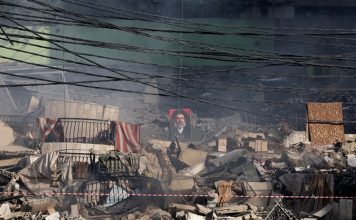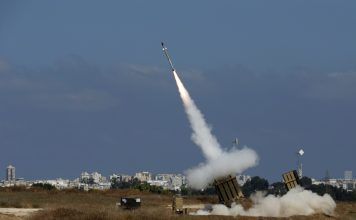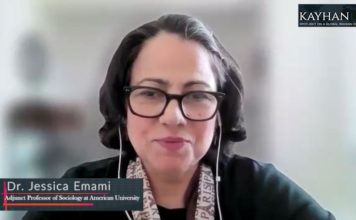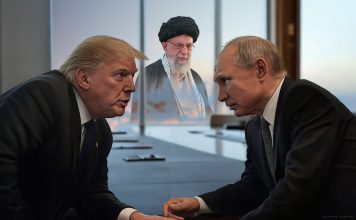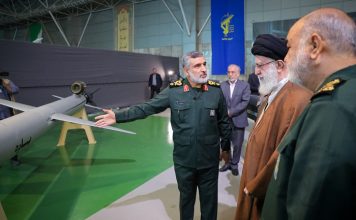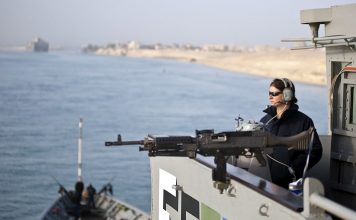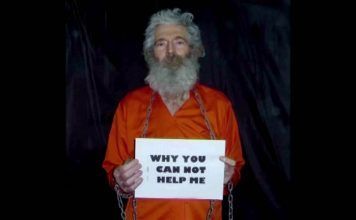By Lawdan Bazargan
[Lawdan Bazargan is a human rights advocate, and a relative of victims of the 1988 massacre of political prisoners in Iran. The views expressed are her own.]
The devastating surprise attack by Gaza militants on Israel — 50 years and a day after the Yom Kippur War — has left hundreds of innocent Israelis and Palestinians dead, and sparked a full-blown conflict. As the world watches this tragedy unfold, it is crucial to examine the underlying factors and actors that may have played a significant role in orchestrating this catastrophe. While the immediate responsibility lies with Hamas, it is essential to consider broader geopolitical questions, specifically Iran’s role in the region.
The audaciousness of the attack, with militants from Gaza infiltrating Israel via land, sea, and air, raises questions about the level of sophistication and support behind such an operation. It is doubtful that a group like Hamas, which has been under significant pressure and isolation, could execute such a large-scale assault without external assistance. This leads us to Iran, a nation notorious for supporting militant groups across the Middle East.
Iran’s motivations in this attack become more evident when we examine the broader context of regional geopolitics. Over the past few years, we have witnessed significant steps toward normalizing relations between Israel and several Arab states, including Saudi Arabia. These groundbreaking developments have the potential to bring stability and prosperity to a region long plagued by conflict. However, the Islamic Republic, which views itself as a regional superpower, perceives these normalized relations as a direct threat to its interests.
Tehran has consistently sought to undermine any progress toward peace and stability in the Middle East that does not align with its own ambitions. By supporting proxies like Hamas, Iran can instigate conflicts that divert attention from diplomatic initiatives and hinder the normalization of relations.
After Hamas’s brutal attack on Israeli citizens, members of the Islamic Consultative Assembly openly chanted “Death to Israel” in a disturbing display of solidarity with Palestinians. This unequivocal endorsement of the recent terrorist attacks by Hamas against Israel sends a chilling message to the international community.
Additionally, the Iranian regime distributed drinks and sweets to celebrate the attacks on Israel in Tehran’s Palestine Square, further emphasizing the regime’s readiness to fuel hatred and violence instead of promoting dialogue and understanding. This alarming stance by the Iranian government underscores the urgent need to recognize its true nature. This regime aligns itself with terrorism and stands as a formidable obstacle to peace and stability in the region.
Iran’s Supreme Leader, Ali Khamenei, recently described Israel as a “cancer” that “must surely be eradicated by the grace of God, through the hands of the Palestinian people and the resistance forces in the entire region.” Khamenei asserted: “Israel is not a country but rather a terrorist garrison against the Palestinians and other Muslim nations.” He added: “The Islamic Republic’s firm stance is that governments engaging in normalization with the Zionist regime are making a grave mistake and will face inevitable losses. They are, as the Europeans say, betting on a losing horse. Today, the Zionist regime is not conducive to fostering closer relations. Governments should avoid this mistake, as the usurping regime’s days are numbered.”
These are direct threats against Israel, Saudi Arabia, and other Arab countries looking into normalizing relations and finding a peaceful solution for Palestinians.
The horrifying details of this attack by Hamas militants, including the slaughter of civilians, kidnappings, the treatment of hostages, and the desecration of corpses, are reminiscent of tactics used by the Islamic Republic against its citizens. This suggests a pattern of behavior consistent with Iran’s influence and strategy, further implicating the Iranian regime in the attack’s planning and execution.
It is crucial to emphasize that what Hamas calls “war” is far from it. The footage emerging from the conflict shows a medieval tribal raid characterized by indiscriminate killing, hostage taking, and a distinct lack of strategic engagement. Hamas leaders’ rhetoric, which labels ordinary people as occupiers and justifies their killings, further reveals the group’s extremist agenda. Hamas’s actions provide self-incriminating evidence of war crimes, raising serious concerns about accountability and justice. The international community must not turn a blind eye to these violations, and those responsible must be held accountable for their actions.
Furthermore, the recent negotiations between the United States and Iran regarding Iran’s hostage-taking foreign policy have emboldened the Iranian regime to pursue its terrorist activities. While securing the release of American hostages is a commendable objective, the method by which it was accomplished is disconcerting. The release of five Iranian agents, previously convicted in U.S. courts, and the unfreezing of $6 billion in Iranian oil revenue raise questions about the unintended consequences of rewarding a regime known for its destabilizing actions.
Following this problematic deal, in an interview with NBC News, Iranian President Ebrahim Raisi explicitly stated Iran’s opposition to bilateral relations between regional countries and Israel, emphasizing his belief that Israel seeks normalization with regional nations to bolster its own security in the region,
In an interview with CNN, Dr. Mustafa Barghouti, a leader of the Palestinian National Initiative, attributed Hamas’s attack to Israel’s land grabs and its refusal to engage in substantive negotiations with Palestinians since 2014. However, what Dr. Barghouti failed to mention is the internal strife among Palestinian factions, including the fight between Mahmoud Abbas, chairman of the Palestine Liberation Organization, and extremist groups like Hamas, Hezbollah, Al-Quds Brigades, and others, which refuse to recognize Israel and are against any form of peaceful negotiations.
The ongoing infighting among Palestinians not only perpetuates division within their ranks, but also inadvertently strengthens the right-wing faction in Israel, reinforcing the actions taken by leaders such as Israeli Prime Minister Benjamin Netanyahu, which often run counter to previous agreements between Palestinians and Israelis. The internal discord among Palestinians, with factions such as Fatah and Hamas competing for control and influence, weakens their collective position in negotiations with Israel. This internal strife makes it challenging to present a unified front and engage in meaningful dialogue. As a result, the political divide within Palestinian territories hinders the pursuit of a cohesive and effective strategy for achieving their goals in negotiations with Israel.
In the absence of a coalition among different Palestinian factions, Arab countries must engage in negotiations with Israel. They must hold Israeli leaders accountable for adhering to international agreements and respecting the rights and aspirations of the Palestinian people. Simultaneously, it is imperative for the international community, including Saudi Arabia and other Arab states, to recognize the destructive role that Iran and its proxies play in the region. The time has come for these nations to take a firm stance against Iran’s interference, terrorist activities, and support for proxies like Hamas. Collaborating with Israel can help counteract Iran’s destructive agenda, ultimately ushering in much-needed peace and prosperity to the Middle East.
OPINION: The Solution to the ‘Iran Problem’ is Regime Change
https://kayhanlife.com/news/kayhan/prince-reza-pahlavi-the-alternative-to-the-islamic-republic-is-the-iranian-nation/




